Writing about the 2011 Hobart Council elections has been a rather strange experience. In past elections the contest has always felt like part of a struggle that would continue to unfold over many years to come. In this case, amalgamation is popular (though not quite as much so as dubious interpretations of polling have suggested) and it’s not clear whether the 12-member HCC will still exist in 2013 or 2015. We don’t even know if it matters who got the four-year term or the two-year term, or if it matters what the slate of recontesting candidates for the next time around will look like, or whether Damon Thomas will even have much time to do anything before his position gets refashioned or expanded. Usually these things develop more slowly than at first appears, but in any case, it’s hard to avoid wondering whether I am writing about a system that may soon be just an electoral relic.
Anyway, this election resulted in the “blue” side of council winning both leadership positions. Curiously, while they have long been the largest informal grouping and have often held about half the seats if not more, this is the first time they’ve held either position since 1999, and the first time they’ve held both together since 1994. The Council also has its first all-male leadership team for 25 years.
That’s not to say this was a strongly “blue” election. Indeed if there is going to be any shift in the balance on Council it could be one that makes it harder for the blues to get their way – Leo Foley won’t vote with them as much as Darlene Haigh did in the last four years, and Sue Hickey might well take some more distinctive positions than Eric Hayes.
In the mayoral race, Damon Thomas confirmed the slight favouritism I suggested for him by winning rather narrowly (by 517 votes or 51.5:48.5 two-candidate preferred). However, it turned out that he had only one close opponent, Helen Burnet. In the case of Jeff Briscoe (third with 21.6%) this was no great surprise given the lack of polish attached to what seems to have been very much a one-man campaign – all things considered, Briscoe’s vote was not that bad. But I was earlier expecting Thomas to have much more trouble from Peter Sexton (fourth with 18.6%) who started with a few big media splashes but then had little campaign visibility, although sounding very smooth and convincing when he did pop up on radio. One problem for the Sextons was that while their dual candidacy made front-page news, a fairly routine campaign by one and no campaign to speak of by another may have made even non-cynical voters wonder what they were up to, and may have convinced some to vote for neither. And although I didn’t see it that way at the time, a fellow scrutineer suggested that Sexton’s prominent acceptance of Doone Kennedy’s endorsement was actually a mistake – it would have undermined his usual self-branding as an uncontentious central force, and scared off some Labor voters.
A slightly surprising aspect of the result is that the preference split between Thomas and Burnet (50:38 with 12% exhausting) was actually rather weak, meaning that Thomas only won because Burnet’s primary lead (two points) was far too small.
The Deputy race did not go as I expected at all! I thought Marti Zucco, who had run one of his noisier campaigns complete with major doses of Green-bashing, had been prominent enough to overcome Ron Christie (who had little but newspaper ads, the odd media grab and a very good campaign website). Christie poked fun at this by beating Zucco by six (6) votes, in a result that had to be counted six (6) times until the exact same answer was reached twice. Having got over Zucco he then got a nearly three-to-one flow against Bill Harvey on Zucco’s hardly Green-friendly preferences and won with plenty to spare (54:46). I also thought that unless the swing against the Greens was severe, Bill Harvey should have been able to beat Christie and Zucco given their unprepossessing past form guides. However, Christie’s excellent aldermanic performance shows that he didn’t just win this position by luck against weak opponents, and in turn shows that Zucco’s performance in losing to him by six votes was quite a strong one too. The suggestion is that the mood of the blue end of the voter base this election was different this time to in 2005-7-9, as if there was a feeling that what the hardliners have been saying (about the Greens and the slow pace of development, especially) has been right all along. Had there been no swing against the Greens, Harvey could have won, but it would have been extremely close if so.
The swing against the Greens can be seen in the aldermanic vote for 2011 compared with the same cycle in 2007 (2009 is not comparable as Valentine was on the aldermanic ballot, and he competes with them significantly). In 2007 the four Green aldermanic candidates polled 26%, but this year three Green candidates, including two incumbents, polled just under 21%. Former Green candidate Corey Peterson ran as an independent with about half his vote coming back to the party in preferences, so a case can be made that the swing is really more like 4% than 5%, but it was nonetheless clearly there. Some have considered that the Greens were blamed for Gehl reports, bicycle lanes and so on but in my view the typical Greens voter likes that stuff anyway. More likely the Green brand suffered local-level damage based on state issues, causing some Green supporters to not bother voting at all. Signs of such a pattern were apparent statewide with very few endorsed Greens winning seats anywhere (and those who did win were incumbents).
The aldermanic count started with Briscoe and Hickey being elected with quotas. A massive 33% of Briscoe’s surplus went to Christie who also got the largest share of Hickey’s. This moved Christie up from fourth to third ahead of Harvey, and Christie was elected after the exclusion of five minor candidates, followed by Harvey after another two and Ruzicka another two later. What suspense ever existed was in the battles for the sixth and seventh positions. Phil Cocker led fellow Green Madeleine Charles by only 116 votes on primaries, and while the flow between the two would ensure one would be elected, the question was whether Charles could catch Cocker and put him out. Cocker kept the gap roughly stable and when Charles was excluded she trailed him by 103.5 votes (actually the closest margin by which any aldermanic candidate was defeated).
Simon Monk was effectively fighting Leo Foley for a seat but started 162 votes behind and fell further behind on every exclusion except for Parry and Charles. By the time Monk was excluded Foley had increased the gap by almost 100 votes. Foley was also, in theory, fighting for the last seat with Eric Hayes who started just 49 votes behind him, but it didn’t take long for this to stop looking like a serious contest. Hayes really needed a substantial lead after the Briscoe and Hickey surpluses in order to counteract unfriendly preferences later (especially Monk’s) but too much of the Briscoe surplus went to Christie and too little to Hayes for this to happen. In fact, Hayes never quite passed Foley, who was 85 ahead when Monk’s preferences, as expected, blew the margin out (to 265).
Indeed, the real interest on the final afternoon was who would come sixth (a four-year term) and who seventh. Phil Cocker only received half of his ticketmate Charles’ preferences (nearly 20% leaked to Ruzicka and there was also a large leak to Monk) and this made it unclear whether Cocker would be elected sixth ahead of Foley – after all, Cocker had been 405 votes behind Foley before Charles was excluded. If the sixth and seventh candidates have not reached quota when the eighth candidate is eliminated, then the preferences of the eighth candidate are thrown to determine sixth and seventh. The preferences of Eric Hayes would have favoured Foley over Cocker, so Cocker needed to avoid this at any cost. He managed to do so by just crossing quota on the primary-value preferences of Simon Monk, while Foley fell just short of doing so on the same count and had to wait for some later Monk preferences. The margin by which the Greens avoided the ignominy (for them) of a two-year term was a mere fifty votes – but a two-year term is far from ignominious for Foley who has been trying to get onto council for several years.
Of the winners, the standout performance was by Sue Hickey, the first candidate in my experience of Council elections (which goes back to the late 80s, before which the proportion voting was very small indeed) to be elected with a quota at the first attempt. It is an especially remarkable vote since the Hickey campaign was an unknown quantity in a particularly active pre-season and only emerged after nominations were revealed. Furthermore, while the signs and brochures in the Hickey campaign were especially well produced, her campaign was hardly high profile beyond the visibility basics. Apparently, it did not need to be. After such a result, it will be interesting to see what Hickey’s future has in store.
Jeff Briscoe topped the poll with over a quota as expected, and his vote of 1.39 quotas was towards the upper end of the range of outcomes suggested. Eva Ruzicka’s vote declined by just over half compared to 2007 when her profile was much higher, but that too was largely as expected. Leo Foley’s primary vote was similar to 2007, but as well as having better luck in the distribution of other votes than in the past, Foley performed very well on preferences. The votes for Harvey and Cocker (with Harvey polling over double his more experienced colleague’s primaries) showed, as with Briscoe and Ruzicka, that current public profile is very important to a sitting alderman’s vote level. The strongest performance among those re-elected came from Christie. I expected him to lift somewhat from his awkward (and very lucky) 2007 result but I did not think he would be third! For more on why I think I got this wrong, see DLM comments above.
Defeated incumbent Eric Hayes was always facing a tough struggle at this election given that he had less than half a term to re-establish himself on Council. His primary vote was not too bad but gaining less than 10% of the combined surpluses of Briscoe and Hickey showed that he did not appeal strongly enough to the broader “blue” voter base at the point where he desperately needed #2 votes rather than 5s and 6s to stay in the hunt.
Of the defeated non-incumbents, by far the best performance was by Madeleine Charles who polled a whopping 808 votes as the #3 Green and almost unseated a sitting colleague. I was conservatively confident Charles would “rack up a few hundred votes, especially as the only female on the Greens ticket” but for her to go so close was very surprising. There may have also been elements of strategic or encouragement-oriented voting in this outcome, but clearly, public attacks on Charles being supposedly too young to run for Council backfired and her preselection proved well justified.
Simon Monk (Labor) polled slightly more votes than Charles, but for the mighty ALP to run an endorsed campaign that polls less than five percent of the vote and barely beats the third Greens candidate is just embarrassing. As an information-gathering exercise the Labor campaign may have proved very useful, but in most respects it was a failure that did not even show that Labor was listening to or engaging with the community as intended. In my view the party would have won a seat had they offered a candidate who had substantial experience that was directly relevant to local government. Even without doing so I gave them a fair chance, but in the end (like federal Denison all over again) the voters were even more cynical about the campaign than I was. Both on primaries and on preferences, the endorsed candidate was soundly beaten by the nearest privateer equivalent, who had the local-issue experience that Monk was unable to demonstrate. Foley’s comments on his blog in August seem rather to cover how voters thought the matter through:
“It is up to the citizens of Hobart and Glenorchy to ignore Party candidates, endorsed or not. They should elect people who have a track record of representing the interests of their community.”
The endorsed Labor candidate in Glenorchy, who did have some of that track record, got up, although seventh in a field of ten was hardly an awesome performance by the party.
Labor can learn from this result that it does not have nearly the level of automatic goodwill that the Greens get from a certain proportion of their support base. It has enough troubles convincing its supporters to vote in council elections at all without having to fend off credible-sounding accusations that Council is being used as a stepping-stone. Monk often showed that he was able to comment originally and thoughtfully on council issues, but at the same time he continually displayed inexperience in doing so. An example, which I somehow managed to avoid picking on at the time, was this piece endorsing a back-to-the-future ward system. The few remaining Tasmanian ward/district relics were actually killed off in the nineties, in part because whatever community representation they safeguard comes at the price of a loss of political diversity through the use of single or dual-member elections.
Tiina-Liisa Sexton was a highly electable candidate on paper but did not seem to campaign significantly and hence recorded a far lower vote than at first expected. Corey Peterson’s vote running as an independent for the first time was about the same as he has polled as a Green #2 and 3 candidate. Finally, of the six candidates polling below 300 primaries, Peter Brownscombe performed remarkably well on preferences. At the time of his exclusion, Brownscombe had gained more preferences than any of Charles, Cocker, Foley, Harvey, Monk, Peterson and Sexton, and only six fewer than Hayes. Indeed, limited sampling of the preferences of elected candidates suggests that in the unlikely case of Foley retiring during his term, Brownscombe would be a possible countback winner. (Hayes seems the most likely countback winner for all other winners except the Greens, for whom the recount winner would be Charles.)
So that’s that for another two years, or perhaps that’s that forever for the system in the form we know. In all, this was a wasted opportunity for the blues who could have won the vacant seat and increased their numbers to seven. Most likely, in retrospect, that bird flew when Adrian Bold failed to get his nomination in on time. For the time being (based on the expected positions of Hickey and Foley) the new council contains six “blues”, three Greens and three aldermen in between those two ends of the spectrum. However, there are a many assumptions in this model and defeated mayoral rivals can be unpredictable creatures. It’s hardly a clear working majority for the Thomas/Christie team, although some respite may arrive if Valentine is elected to the LegCo, resigns his Council seat and is replaced by John Freeman (assuming Freeman recontests). It would be funny if the new team found that they depended on the last “blue” to hold either leadership position, all those years ago.
First published: 2011-11-03 01:33 AM





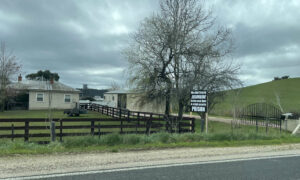







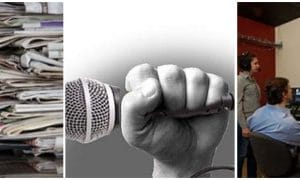



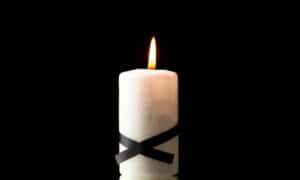



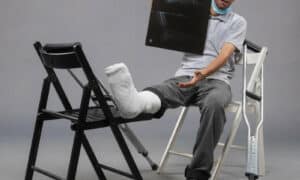

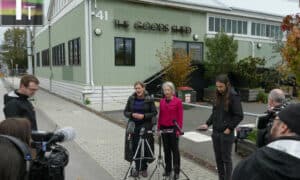



Tim Thorne
November 2, 2011 at 14:33
On the other hand, candidates who espouse genuine “green” values but were not endorsed Greens did very well. Both Jeremy Ball (Launceston) and Ian Howard (Meander Valley) easily topped the polls.